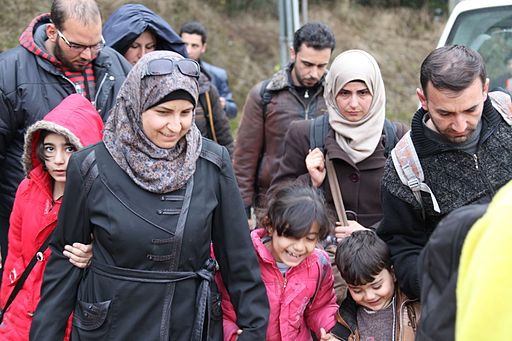
On a Road to everywhere: Migration’s nothing new
Throughout the recent UK referendum, the issues surrounding migration have been a source of discontent amongst a growing number of voters across the social spectrum. It is a problem politicians could not have foreseen as recently as the mid 1980s, with the numbers of people migrating unimaginable in those years. In 2015 over 240 million people lived outside the country of their birth, and that number continues to grow.
Several interrelated factors are driving this population displacement. Europe, the UK, Australia and New Zealand are attractive places to live as compared with life in the homelands of the migrants ( the Middle East, Central Africa, Nigeria and the failed states of Eastern Europe ). The pull and push factors of the contemporary movement of people are the same as the migration movements of the 19th Century: poverty, lack of resources and land, hunger an religious and racial persecution. In the 19th Century there existed “free land” to settle in and start a new life; the central plains of America, the wheat lands of Canada, the Australian Outback. Although it is worth remembering that immigration to these lands was achieved by the slaughter of their native inhabitants.
Another difference between immigration today and in the past is the speed of modern electronic communication, which allows travelling migrants to keep in touch with their home communities on a regular basis. All these factors have contributed to the fact hat now migrants move in their millions, over days rather than months or years as in the 19th Century, thus encouraging even more people to seek opportunity in more affluent societies.
In essence, none of the issues of migration are new. Historical population shifts, though we may not choose to realise it, are part of human history; Vikings, Saxons, Franks and Normans were all originally migrating peoples to this country. Elsewhere, between 1850 and 1910, Germans, Scandinavians, Italians, Greeks and Russian Jews all moved to the aforementioned “free lands” of the New World, driven by all the factors already described – again, all things migrants today are trying to escape from.
Today, as in the past, climate change drives people from Africa and the Middle East. The shortage of water, pollution and the depletion of minerals and fossil fuels are the long-term economic factors which will continue to drive the movement of people to seek more abundant resources. And it is these climactic factors which above all others will continue to drive long-term migration.
Turning our backs on Europe today may well not help solve the migration issue, for us or for the continent. Time will tell. History is not on our side, though. Ending civil war in Syria might help, but that does not seem a realistic prospect at this point in time. On the global stage, cooperation between trading blocs to manage water resources at a strategic level might, however. My point is that migration is not a new problem, it will always be an issue for us all. Isn’t that something worth thinking about in this day and age?